With one week to go before the historic referendum decision, voters are expressing an uneasy acceptance of the controversial charter which opens the way for the ruling military government to remain in power for another five years.
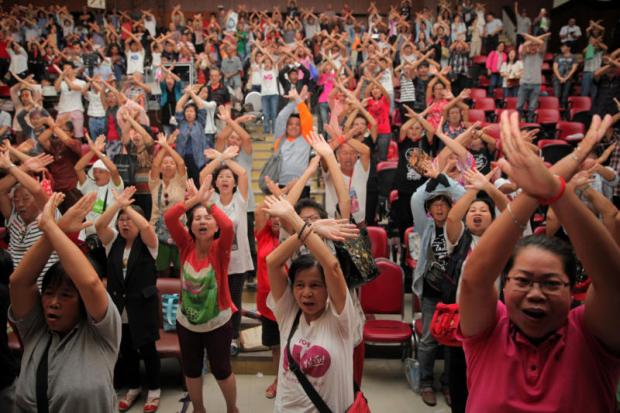
No, thank you: Members of civil groups show their opposition to the draft constitution during a seminar at Thammasat University's Tha Prachan campus. photo: Wichan Charoenkiatpakul
In an effort to gauge the mood around the country, Spectrum interviewed dozens of voters from the North, Northeast, the South and Bangkok to try and ascertain their voting intentions, understanding of and future hopes for the constitution penned by Meechai Ruchupan. The interview subjects came from all walks of life, from farmers and business people to schoolteachers, lawyers, consultants and politicians.
With an additional question asking whether 250 unelected senators can have a crucial role in determining the next prime minister, the referendum was always going to be controversial. But equally unsettling has been the Prayut Chan-o-cha government and the Election Commission's restrictions on open debate about the charter's contents in the run-up to the vote. The UN Special Rapporteur last week condemned the high number of arrests -- more than 85 since last month -- as part of the government crackdown on dissenting voices.
An opaque set of rules set out by the EC under laws to run the referendum (see Page 9) has only added to some people's confusion over what they can and can't say. It comes as little surprise that a nationwide opinion poll by the National Institute of Development Administration last week found a huge 60% of voters were still undecided on whether or not to accept the charter. But if the answers Spectrum received -- from Chiang Mai to Bangkok to Pattani -- are anything to go on, it seems that most people intend to vote next Sunday, and vote "yes". Also, many of those who supported the charter did so with a sense of resignation that it is the only way forward for the country, with Mr Meechai's "anti-corruption constitution" as its driver.
CORRUPTION THE KEY
Corruption allegations against Thaksin Shinawatra kick-started protests against the fugitive former prime minister and his affiliated political parties, and have divided and dominated Thai politics ever since.
The Constitution Drafting Committee has made corruption one of the focuses of the draft, which gives more power to the Constitutional Court and independent bodies to serve checks-and-balances functions with public scrutiny. The political system is also restructured to prevent people who cheat from being involved in politics.
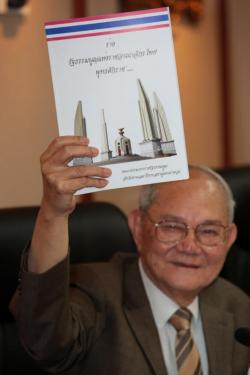
Up for adoption: Chief constutition writer Meechai Ruchupan with the draft that will be subject to a referendum next Sunday. photos: Chanat Katanyu
Kriengkrai Lertsirisamphan, a 48-year-old business adviser in Bangkok, said although the charter might not help develop the country, it will effectively rid it of corruption, including vote-buying and nepotism.
But he said restrictions should not be too severe or they will prevent people -- some who might have been framed to appear guilty of corruption -- from entering politics. The criticism corresponds with that of the three main political parties, who say the charter seeks to place excessive control on politicians. If the charter is rejected, he said the government should adopt a previous charter as an interim remedy.
"If it's rejected, it means the majority have negative views towards the National Council for Peace and Order," he said.
Janjira Didcharoen, a 21-year-old student at the northeastern Ubon Ratchathani University's political science faculty, said the draft charter gives too much decision-making power to the government, which will pave the way for corruption.
"The criteria for this decision-making are also unclear, and it will be hard for people to catch their mistakes," she said.
In Thaksin's political stronghold of Chiang Mai, Noi Sangwan, a social worker in her thirties, told Spectrum tackling corruption would most likely turn out to be the hallmark of the current administration as it had struggled to improve the economic situation.
"I fully believe that this government came here to reset our messy society to zero," she said. "When he first stepped in and took over our country under a military government, Gen Prayut used this anti-corruption scheme as his strongest point under his dictatorial powers. If this can really happen, I will be very happy to see such a big change to this country, which no one else has been able to do."
But many people Spectrum spoke to in Chiang Mai, while expressing support for anti-corruption measures, doubted they could be enforced even if the new constitution is accepted.
In southern Trang province, rubber plantation farmer Jamnong Srinacon, 36, also said anti-corruption measures would be hard to enforce. He also expressed concerns they may be biased against particular politicians.
"A constitution is part of a country's governance," he said. "How well it will be implemented depends on people and its enforcement. Without effective enforcement, the constitution will fail to achieve its anti-corruption goal like past constitutions have failed."
Some critics argue the anti-corruption measures only target elected politicians while ignoring military graft. A leaflet distributed by the anti-junta New Democracy Movement counters the government's claims by saying the Constitutional Court and independent organisations already have a lot of authority and a history of intervening in the acts of those elected to power. Some members of these independent organisations have a close relationship with the NCPO, according to the NDM.
PROGRESS OR PARALYSIS?
Pornsil Patchrintanakul, an adviser to the Thai Chamber of Commerce, warned against rejecting the draft charter, saying doing so would lead to uncertainty for the country and the business community.
"If the charter is approved, there will be elections. But if it is rejected, we don't know what >> >> will happen, and who knows how long it will take to finish drafting a new charter. The risk lies with the latter," he said. "And businesses don't like uncertainty, so that might affect the economy and definitely the stock market."
But Pavich Supapipat, a political consultant, said the draft charter will not help develop the country as it lacks public participation. He said government should seek ways to involve the public sector in drafting a new charter if it is rejected.
"If the charter is rejected, it shows that the government lacks legitimacy," he said. "The country is still suffering from economic issues, there is still conflict and they can't get people to approve the charter. People will think that nothing works [under this government]."
Central to development is education, and some voters expressed fears that the constitutional change to provide free schooling for 12 years, from kindergarten to Mathayom 3 level, was the wrong move. The majority said the 12 years of free education should be maintained until the completion of high school, and even extended to tertiary level.
Wanpen Somkit, a 35-year-old school director in Chiang Mai, said it was unacceptable for the government to "cut down the years of education support".
She said while the changes in the referendum may sound like good opportunities, they "don't benefit many".
But Ampai Moonthi, 54, who teaches in Mae Taeng district 60km outside Chiang Mai, has a different perspective. For three decades her students have been hill-tribe and rural children and even adults undergoing basic education. She said if the government's purpose is to provide a basic education to all, then Mathayom 3 "is more than enough".
"I've taught all my life in suburban areas and I know that many people don't see education as that important," she told Spectrum. However, she said a better deployment of education resources may help those going on to university studies rather than forcing them to take out student loans.
HEALTH CARE FEARS
The undermining of health benefits under the new constitution was another issue rural voters in the North and South were worried about.
Songkhla farmer Kanokpol Laotrakul, 44, said he was concerned about the draft's vague wording. "It will turn Thailand's universal healthcare scheme from a basic right to just an aid for patients who are defined as poor people," he said.
In the lower-income outer suburbs of Chiang Mai, many voters expressed similar concerns and encouraged future governments to extend the healthcare system.
A 31-year-old bank manager, who identified herself as Ms Chayanit, says universal health care was especially important for the elderly with no income.
"Everyone should have this basic right to good medical care no matter who they are," she said. "If the government wants to talk about eliminating differences and inequality in our society, this is the best way to show it."
Siripen Simprarach, 34, a pharmacist who lives in Hang Dong district, says the healthcare system is not equal at the moment. From her experience, people on government healthcare schemes tend to receive better care and medication.
"If Gen Prayut sincerely wants to bring equality to all people, the healthcare system should be made equal for everyone. Those who are on the 30 baht health care or social security get less benefits than those who are under the government officials' healthcare scheme," Ms Siripen said.
"The government officials get expensive pills while those who are on the 30 baht scheme get very basic medication. What is even worse is that some officials try to sell the expensive pills they get to pharmacists."
IGNORANCE ISN'T BLISS
The country's south is where People's Democratic Reform Committee leader Suthep Thaugsuban took his initial core support from for his prolonged street rallies in Bangkok against the Yingluck Shinawatra government before the May 2014 coup.
Private polling by both government agencies and political parties is showing the South is where support for a "yes" vote is strongest. Surprisingly, it's here where Spectrum heard the most grievances against the lack of public input into the drafting process, and poor education and open debate about what Mr Meechai arrived at.
The referendum ballot paper will have two questions, the first asking whether or not voters accept the draft charter, and the second asking whether the Senate should join the House of Representatives in selecting the prime minister, who could come from outside parliament. If both questions are accepted, the draft charter will be amended to include the extra provision. The 250 senators would join the 500 elected MPs in a joint sitting to determine the next prime minister.
Songkhla farmer Mr Kanokpol said the draft was designed to be against democratic and human rights principles, citing concerns over the potential for the senators to help choose a prime minister.
"I don't think that the draft will improve the country," he said. "Lawmakers didn't involve the public in the draft process, and instead had a ready-made draft constitution where the only feedback we can give is 'yes' or 'no.' "
Suthawan Buapan, 44, a caterer from Satun, said she was concerned by the limited freedom of expression for debating the charter.
"The legal language in the draft constitution is difficult to comprehend for many ordinary people," she said. "The current situation where the government campaigns only on the benefits of the draft while limiting people from criticising it has worsened the atmosphere." Ms Suthawan said she had only read parts of the draft which related to her life, such as those on community rights, which may not get full protection.
NCPO orders issued under Section 44 of the interim charter will remain in effect after the next election, plus the Public Gathering Act which requires police permission prior to public assembly.
Ms Suthawan believes provisions such as these will make political reconciliation harder if the new constitution is implemented.
In Chiang Mai, every person interviewed by Spectrum said the 1997 "People's Constitution" was better than Mr Meechai's, which the majority labelled a waste of time.
"For me, the best constitution is the one from 1997," said schoolteacher Ms Ampai. >> >> "The reason I think it's the best is because the committee actually got thousands of people to be part of the draft from all occupations, interest groups and political viewpoints. From the thousands, they narrowed that down to 100 and everyone's opinion counted.
"The constitution from 1997 was truly drafted by the people for the people, unlike this version."
YES, NO, MAYBE
Despite the concerns, the majority of people Spectrum spoke to across the country said they would cast a vote, with many saying they would vote "yes".
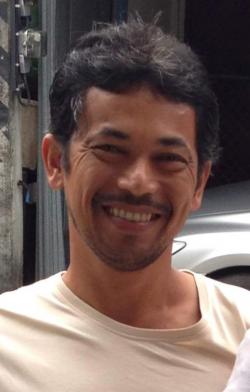
A few concerns: Songkhla farmer Kanokpol Laotrakul, above, worries about the future of health care. Satun caterer Suthawan Buapan, right, wishes there was more debate over the charter. photo: xxxxx xxxxx
Although they said they would vote to accept the charter, they added they had reservations about accepting a non-elected prime minister.
Pranee, 49, who owns a grocery store in Buri Ram's Satuk district, said she will vote "yes" because she believes it will result in less corruption. "I think what we have right now is better than before," said Ms Pranee, who used to support Thaksin. "But even if I don't like [Thaksin], it doesn't mean that I fully support this side [the military]. I still want to see an elected prime minister."
Seksan, 23, a motorcycle taxi driver from Roi Et, said he will vote to accept the charter in order to pave the way for elections as soon as possible.
"Even if the charter is voted down, there should still be elections, or else the country will not move forward," he said.
Mr Pavich, the political consultant, agreed it was not acceptable to have an appointed prime minister, which he regards as a "step backwards" for the country. "The 1997 charter is considered the best in my opinion because MPs and senators are elected," he said.
Democrat Party leader Abhisit Vejjajiva also announced last week he would not accept the draft constitution, saying it was his personal stance but one which reflected the ideology of his party. While reports later emerged of division in Democrat ranks, Mr Abhisit said the draft failed to solve the problems of corruption, national development and political conflict. He said the 250 hand-picked senators would not only fail to solve political conflicts but also add to them as they are not truly representative of the people.
"The fact that I will not accept this draft constitution does not mean that I am trying to create chaos for my country," Mr Abhisit said.
Key PDRC leader Buddhipongse Punnakanta said he will vote "yes" because of the anti-corruption measures, including an increased penalty for corrupt politicians, which will help prevent "bad people" from entering politics.
"In the current situation, we need to solve the country's bigger issues first, such as corruption," he said. "Everyone accepts that if there are good politicians who are less corrupt, the country will improve."
WHAT IF IT FAILS?
When asked what will happen if the draft was rejected, opinions were divided on what the military rulers' next move would be.
"The current prime minister will probably not quit, and there will be an extension of power by the army," said university student Ms Janjira. "He himself has announced publicly that if the charter is rejected, he will stay on."
In Chiang Mai, voters expressed concern about the Prayut administration continuing to govern, irrespective of the outcome of the referendum vote.
"I'm not feeling uncomfortable about him being in power, but please don't let it be too long," said social worker Ms Noi. "He will stir up more anger and people may not support him any more, especially those who used to be his main supporters."
Schoolteacher Ms Ampai said if the government stays on true believers in democracy may not like what the prime minister is doing. "Maybe it's time for him to allow things to get back to normal as soon as possible," she said.
But Jaroonroat Krasaesuk, a businessman and legal adviser in Chiang Mai, said the longer Gen Prayut stays in power the more likely political tensions will ease.
"When he eventually gives back power to the people the situation may not be that tense because Thai people usually forget things easily," he said. "The negative part is that we would be looked at in a negative way by some foreign countries that don't understand Thai politics, which is complicated. Plus, we have our own version of democracy which is not the full democratic system practised in other countries."
PDRC leader Mr Buddhipongse said if the constitution is rejected, the NCPO might need to use its powers under Section 44 to set up a new constitution drafting committee. Regardless of whether or not the charter is adopted, the NCPO will be in power for a long time, he said.
"But if the charter is passed, at least they [the NCPO] will stick to their roadmap, in which everything will move forward according to the timeline," he said. "But if it's rejected, the NCPO may have to stay on even longer and everything will have to start from zero."
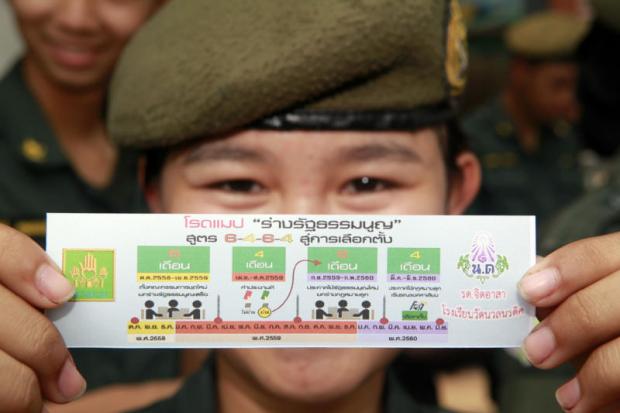
Get out the vote: Ror Dor territorial defence students have been handing out material to encourage participation in the referendum. photo: xxxxx xxxxx
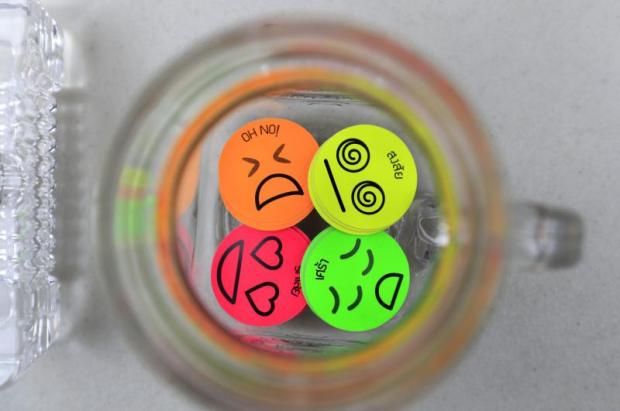
Mixed feelings: Emoji stickers reading 'oh no!', 'suspicious', 'sad' and 'love' for people to stick on the draft at the Free Fair event at Thammasat. photos: epa, Apichart Jinakul, Pattarachai Preechapanich and supplied

Pornsil Patchrintanakul.
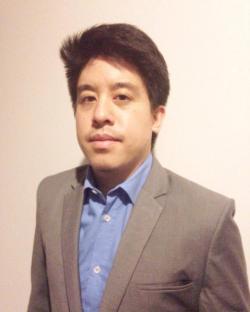
Pavich Supapipat.
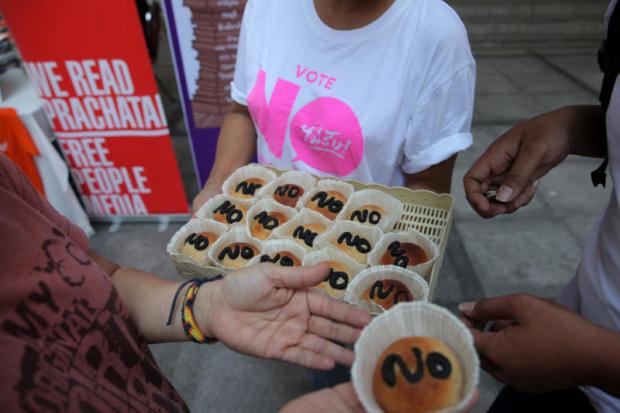
Taking the cake: Anti-charter groups have found creative ways to get their message across amid legal restrictions in the lead-up to next Sunday's vote. Wichan Charoenkiatpakul


Sticking together: PDRC leadership figures Suthep Thaugsuban and Buddhipongse Punnakanta.
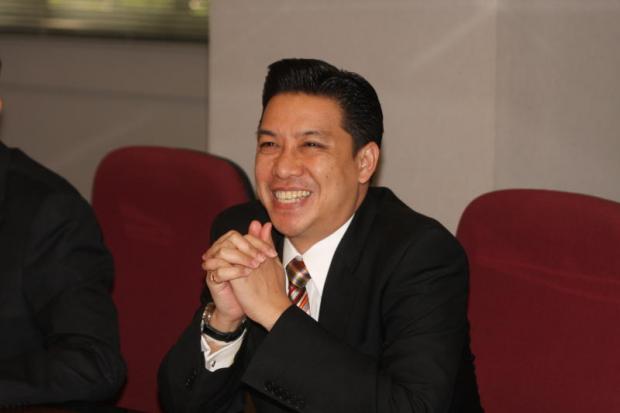

Lead-in: photos: Patipat Janthong, epa and Phrakrit Juntawong